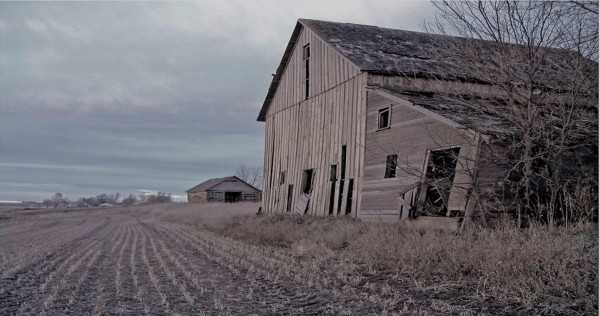Today’s guest post comes from Raully Donahue. Donahue took a PhD in European history from Notre Dame into upper Michigan to raise three boys. Now that the boys are grown, he is trying to figure out what he wants to do with his life. Here he shares his observations on Christian scholarship and the Christian public.
One of my standard conversation openers at parties is to ask this question: “Why is C. S. Lewis one of the most revered writers in evangelical circles, given the fact that he is a member of the Church of England with a troubling personal life who has been dead now for over fifty years?” I have gotten some amazing answers over the years about what I call the Lewis Exception: speculation about the role of children’s literature in religious circles, the observation that evangelicals most love dead writers who cannot contradict them, even one disproportionately passionate homily on the self-hating Anglophilia of Southern Baptists.
When I first met George Marsden, I asked him the riddle. He thought about it for a moment, scrunched his eyebrows. “Probably,” he said, “because so many American GIs listened to him on the BBC while they were in Europe.” A practical answer. The solution lay not in theories about evangelicalism or even Lewis: it was a matter of distribution.
Which brings me to the reason for this post:
Christian scholarship’s primary challenge today isn’t about its mission or its focus: it’s about distribution. Over the past few decades Protestant colleges have enhanced their academic credentials. Serious works of scholarship by faithful professors are arriving at the printers at an impressive rate. My own generation (I’m forty-three now) has produced an impressive cadre of scholars, many of whom were trained, like me, at the University of Notre Dame by George Marsden, Al Plantinga and Mark Noll. And yet it has yet to produce a Lewis. Or even a Noll. Why? I would argue that it is not the quality of the work: it is a question of distribution.

I speak largely from my own experience. Having finished graduate school, I abandoned academia for small-town Michigan to raise three boys. I live in Midland County, a place whose very name speaks to its white bread nature. It voted for Obama twice and then swung for Trump, a little better educated than most counties but still with the usual array of Midwest problems. When I came to town, few pastors here could name a single living Christian scholar. The pastor of the largest church in town posted on his website his ten favorite intellectuals, a list that included both Noll and Marsden, but the church dismissed him shortly after my arrival for his ‘liberal’ political views. (I have no idea which views earned him the label.)
Outside of a few small churches, no Protestants here participate in the broader world of current Christian scholarship. They are in fact unaware of it. This is a distribution problem. Most of the information they receive from the broader religious world comes through a Christian radio station that parrots conservative talking points, religious cable channels such as TNN and cable news. The mainline churches in town all have large endowed libraries, but the shelves are
populated with novels and Christian romance books. Denominations could serve as a link between the Christian university and the local church, but they rarely do. The Dutch Reformed Church where I worship does take some advantage of Calvin College’s webinars, but we have little actual link to the school. Other churches in town like the Presbyterian and Episcopalian Church have seen their denomination schools in the region rapidly secularize and receive little information from these schools beyond petitions from the admissions office. Most of the rapidly growing churches in the area don’t belong to any denomination
To return to the Lewis Exception: If Lewis was able to reach millions of evangelicals it was because of his presence on the BBC. And yet in our culture today what is the equivalent of the BBC? Does America today even have a central institution of information distribution like this? And how would Christian academics even get on it?
Academia still measures success by the production of books. Christian scholarship meets these academic standards but might this not lessen their ability to influence an evangelical culture that is increasingly postliterate?
Even when books do manage to become topics of conversation, it rarely makes into the local church because of the political bent of the distribution networks that control much of academia. Consider the publication of Charles Marsh’s Strange Glory: A Life of Dietrich Bonhoeffer, an outstanding work based on a lifetime of studying the German theologian and his impact on the American civil rights movement. This beautifully written book is in my opinion the best English language book on the subject on a topic that most evangelicals will find interesting. (It has Nazis, romance, assassination, radical faith!) Yet it was overshadowed by the simultaneous publication of Eric Metaxas’ Bonhoeffer: Pastor, Martyr, Prophet, Spy, a book that, to put it nicely, does not deserve the same respect. Metaxas, a conservative pundit and Trump supporter, reached a popular audience within the church that Marsh, a theology professor at the University at Virginia and a model of Christian scholarship, simply could not. Ask yourself: Did you read one of these books and not the other one? If so, why? What networks of distribution convinced you that one of these books was worth reading and the other one was not?
America has become a nation divided. I live in Trump country where people love God, do their best, and have no exposure to Christian scholarship. Their children don’t attend private universities. They don’t have access to a Christian bookstore. Christian scholars don’t appear on their TVs and radios. With the rising costs of university and growing suspicion of higher education, fewer and fewer working class individuals are even going to step foot on a Christian campus. No matter how vibrant of places Christian academic institutions become, it will not matter if most of this country has to travel to another America to participate in it.
Another Notre Dame professor comes to mind when I think of this problem. Ralph MacInerny may not have been the most respected philosopher on campus. Heck, he spent much of his later years writing paperback mysteries set on campus. Still he had an influence off campus in the local churches. He spoke about a hundred times a year at Knights of Columbus meetings, youth retreats, Irish festivals and football rallies. He brought the thought and spirit of Notre Dame into the separate and unequal neighborhoods of South Bend, Chicago, Gary, Elkhart. I often found him in my rundown neighborhood at the local coffee shop holding court. Christian scholarship needs its Plantingas to reach its heights, but it also needs its MacInernys to broaden its influence. In my opinion, the divided state of the country makes this nearly impossible.
If most Christians are to benefit from Christian scholarship, the universities will have to take the first step. Perhaps Christian schools should take church work into consideration when assigning tenure. Perhaps other platforms like John Fea’s excellent blog and podcast, The Way of Improvement Leads Home, should be considered part of a teaching load. I don’t know the solution, and it may be that some schools are already intentionally tackling the problem of distribution. I hope so.













